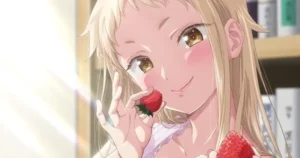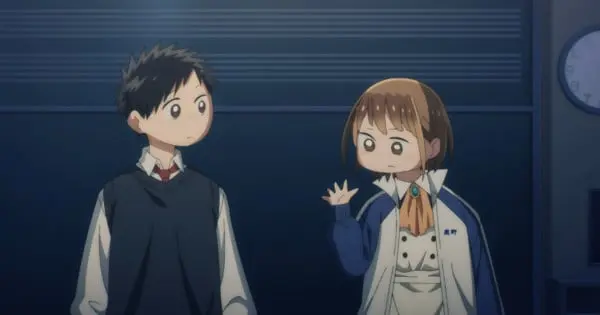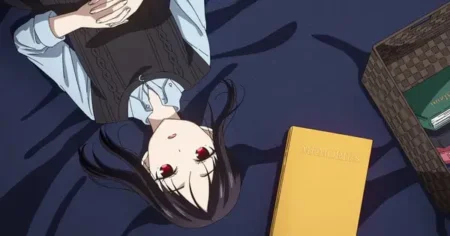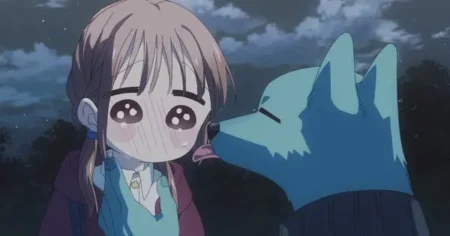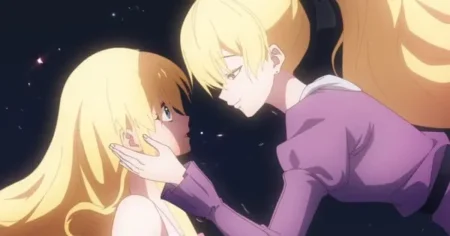The latest installment of the hit manga series “Blue Box” has fans buzzing as episode 19 brings the Eimei Academy school festival to the forefront, igniting both comedic moments and burgeoning romantic feelings. As Taiki and Chinatsu navigate the complexities of their shared living situation and individual athletic pursuits, the festival atmosphere adds another layer to their already intricate relationship.
A Festival of Flustered Feelings
The episode opens with a lighthearted scene where Taiki is caught off guard by Hina, who is wearing a Snow White costume for the festival. Taiki’s reaction causes Hina to flee, highlighting the underlying awkwardness and unspoken feelings within their social circle. The focus quickly shifts to the central relationship between Taiki and Chinatsu as the festival day approaches.
Practice and Provocations
On the day of the festival, Taiki encounters Chinatsu during her practice session. This meeting leads to a pivotal moment: Chinatsu invites Taiki to watch a live band performance with her at the Eimei Festival. This invitation marks a significant step in their relationship, suggesting a deepening connection beyond their shared living space and sports practices.
A Hybrid Genre
“Blue Box” distinguishes itself by blending elements of a romantic comedy, slice-of-life narrative, and sports story. While the sports aspect—basketball for Chinatsu and badminton for Taiki—is present, the series doesn’t heavily delve into the technicalities of either. Instead, it uses sports as a backdrop to explore character motivations and interpersonal relationships. This approach sets it apart from traditional sports manga, aligning more closely with shojo sensibilities despite its serialization in Weekly Shonen Jump.
Characters and their Drives
The strength of “Blue Box” lies in its characters and their interactions. The series excels at portraying the emotional nuances of its cast, making readers invested in their journeys. Taiki’s attempts to navigate his feelings for Chinatsu, often with the questionable advice of his friends, provide comedic relief while also highlighting his earnest desire to win her over. Chinatsu, focused on her basketball aspirations, adds a layer of complexity to the dynamic, as she balances her athletic goals with her growing awareness of Taiki’s affections.
A Sensitive Story
“Blue Box” earns recognition for its sensitive portrayal of teenage romance and the challenges of balancing personal aspirations with social connections. The manga doesn’t shy away from exploring themes of jealousy, unrequited feelings, and the awkwardness of young love. The author, Kouji Miura, skillfully uses visual storytelling to convey emotions and unspoken feelings, enhancing the narrative’s impact.
Manga’s Strengths
One of the manga’s notable strengths is its ability to use visual conventions to tell stories without relying solely on dialogue. Miura’s artwork is detailed and expressive, capturing the characters’ emotions and adding depth to their interactions. The paneling and flow of the manga are well-executed, making it easy for readers to follow the story and engage with the characters.
Genre Expectations
Some readers have noted that “Blue Box” may suffer from misplaced audience expectations. While the series has elements of a sports manga, its primary focus is on romance and character development. Those expecting intense sports action may be disappointed, as the manga prioritizes the emotional journeys of its characters over detailed depictions of athletic competition. However, for readers who appreciate a character-driven story with a blend of romance, comedy, and sports, “Blue Box” offers a refreshing and engaging experience.
Anime Adaptation
The popularity of “Blue Box” has led to an anime television series adaptation, which premiered in October 2024. Produced by TMS Entertainment and animated by Telecom Animation Film, the anime aims to bring the manga’s story to a wider audience. The anime adaptation is directed by Yūichirō Yano, with Yūko Kakihara writing the screenplay and Takashi Ohmama composing the music. Netflix has licensed the anime for streaming.
Critical Reception
“Blue Box” has garnered positive reviews for its refreshing take on the sports shojo genre. Critics have praised the manga’s well-developed characters, engaging storyline, and expressive artwork. The series has been described as a sweet and charming romance with relatable characters and a satisfying blend of comedy and drama. While some have noted that the premise is simple, the execution is considered to be excellent.
The Road to Nationals
As Taiki and Chinatsu prepare for their respective competitions, the goal of reaching Nationals looms large. These competitions serve as a backdrop to their personal growth and evolving relationship. The pressure to succeed in their sports adds another layer of tension and complexity to their interactions, as they support each other while also pursuing their individual dreams.
The Future of Blue Box
With each new chapter, “Blue Box” continues to captivate readers with its charming characters, relatable situations, and heartwarming story. As Taiki and Chinatsu navigate the challenges of adolescence, sports, and romance, fans eagerly anticipate the next chapter in their journey. The school festival in episode 19 serves as a catalyst for further development in their relationship, setting the stage for new challenges and opportunities as they strive to achieve their goals, both on and off the court.

